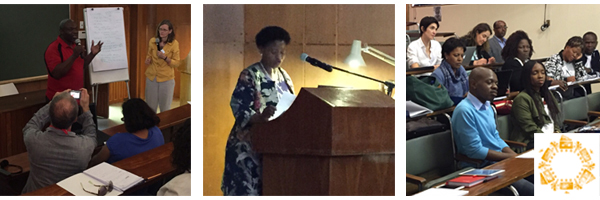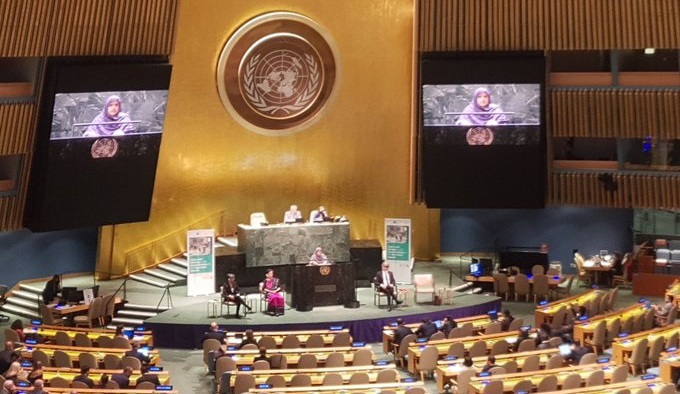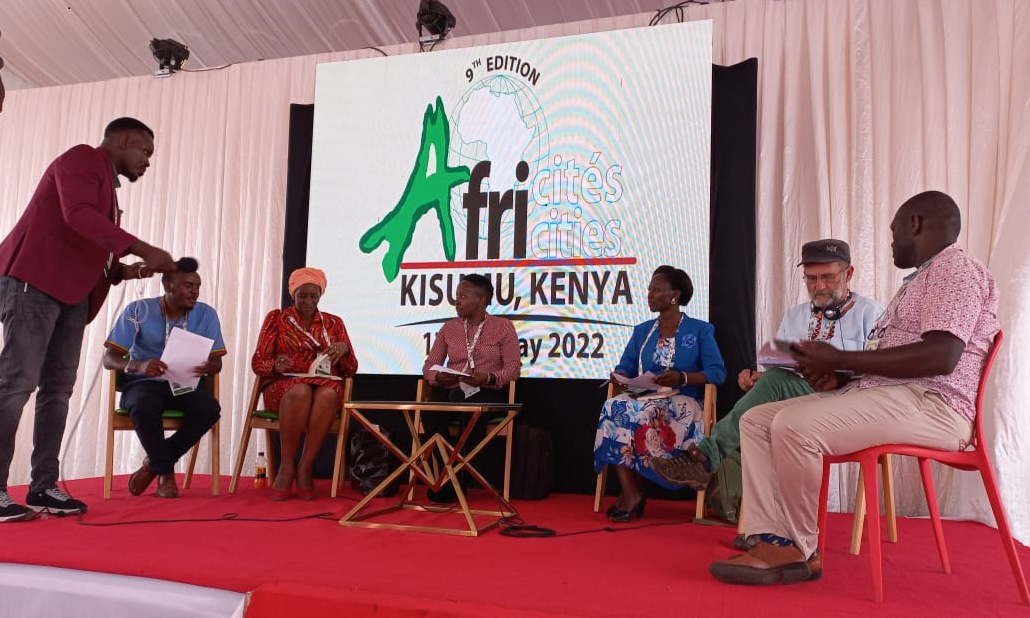
Two events
at the AfriCities VII summit in Johannesburg in late 2015 discussed the
right to the city. Both events were held in preparation for the People’s Social Territorial Alternative Forum , launched
by the World Assembly of Inhabitants (WSF, Tunis 2015) and the People’s
Committee for Land (resistance platform to Habitat III set up in Quito), and
the United Nations Habitat III conference (Quito, October 2016).
The
first event, a day before AfriCities, was the Regional Meeting of the Global
Platform for the Right to the City, which received a warm welcome from a packed
audience. A variety of presentations provided a rich and interesting debate on
the definition of the Global Platform for the Right to the City, its
charter, its goals, and its participatory and inclusive process, and the definition of the concept of the Right to the
City in the African context, in order to promote the platform and mobilize
social movements and their convergence in the region.An even more
productive and specific debate was facilitated by the working group sessions,
enabling a more in-depth discussion and exchange of views on the political,
legal and institutional frameworks as they work in Africa.
The large turnout of
participants, with many, from local and regional inhabitants’ organizations,
including the African members of the International Alliance of Inhabitants,
enhanced the debate with their various experiences from different regions.
However, the discussions also highlighted a concern that was expressed by a
number of participants with regard to the risks that may be associated with the
right to the city in terms of the endless expansion of cities at the expense of
the countryside, which also affects the inhabitants of urban slums and squatter
settlements, often living in unsanitary and high risk conditions where they
face insecurity and the threat of eviction. These concerns are justified, since
the eradication of these human settlements in the name of unbridled urban
expansion, sometimes hidden behind policies to improve and clean up
neighbourhoods, has often resulted in massive human rights violations instead
of supporting the implementation of a genuine right to the city.
For these reasons,
several speakers condemned the hidden facet of the new Urban Agenda being
adopted by Habitat III, which considers that the world’s future is urban and
that cities are the driving force of development, justifying neoliberal
policies which view everything as a commodity, including common goods like
ancestral and communal land.
The debate continued
in the session “Inhabitants and Local Authorities on the road to Quito”, as the
International Alliance of Inhabitants, member of the Global Platform for the
Right to the City, launched a discussion of how to establish the fight for the
right to the city in the different African regions that make up the continent
and thus contribute to the African Union’s Agenda 2063.
The
organizations participating were numerous and varied and a significant
representation from African local authorities served to underline a substantive
agreement to strengthen the African Network of Inhabitants, which has done
everything in its power to ensure that alternative housing and urban planning
policies are implemented. The presence of local authority figure Fatimetou
Abdel Malick, Mayor of Tevragh-Zeina in Mauritania, a “daughter of the people”
who is politically active and attentive to the needs and opinions of the
inhabitants of her commune, further animated the debate. It centred on the
issue of indigenous people as the builders of their towns and villages, working
to improve their impoverished neighbourhoods, slums included, and asserting
their rights and their need for development policies which work in favour of
their environment. Finally, the political significance of this session was
emphasized by the United Cities
and Local Governments of Africa (UCLG-A) ’s adoption of the recommendation to
establish monitoring committees in order to ensure that the inhabitants and the
different local authority representatives proposals’ s are being implemented.
It is important not to lose sight of the Zero Eviction campaign to house
millions of inhabitants in dignity and in harmony between urban and rural
dwellers, city and countryside, which are essential conditions in promoting
people’s participation and governance in the day-to-day running of their city.
All of these tools are important, and mobilization and organized efforts by
inhabitants, will ensure their implementation at the local and regional level,
thanks in particular to the African Network of Inhabitants, which has been
reinforced by the Johannesburg event. Effective mobilization will guarantee
that real progress in solving housing and urban planning problems will be made by the time Africities VIII
(Brazzaville, DRC) takes place in 2018.
The need to rethink
the debate on the right to the city in Africa was underlined. The reality in
the West and in Latin America is not the same as the reality in Africa. While
elsewhere the focus is on condemning the eviction of the working classes from
city centres and the domination of functionalist urban planning which considers
cities as technical objects, the problems in Africa are more concerned with the
precarious situation of slum dwellers, territories under threat of land
grabbing, insecurity, uneven growth, and poverty. Another major concern is
solving the problem of dependency on foreign aid, the new face of a modern-day
colonialism involving various forms of property speculation driven by
multinationals and corporations from China, Singapore, the Middle East and
Europe, and including institutional players like the European Union, World Bank
and IMF. These organizations are fuelling the rate of urbanization in Africa,
the highest in the world
In
essence, it is more a case of the right to land, and even to territory in some
formerly colonized regions. For some, “city” has more of a political and
administrative connotation, which accentuates the problems for indigenous
populations in rural areas and violates the most basic rules for human rights
by not providing equal access to land or the most basic services.
slogan nor a concept, nor should it be limited to accessing the urban resources,
which are essential for a liveable
environment. It should not merely lead to adequate housing, employment and
mobility but to the right to land, all the more so today when every citizen is
entitled to participate in local political debate. It would be better to speak
of the “right to the city and the land.” A
right which should be asserted through the efforts of inhabitants across the
African continent, in order to incite political action up to Quito and beyond.



